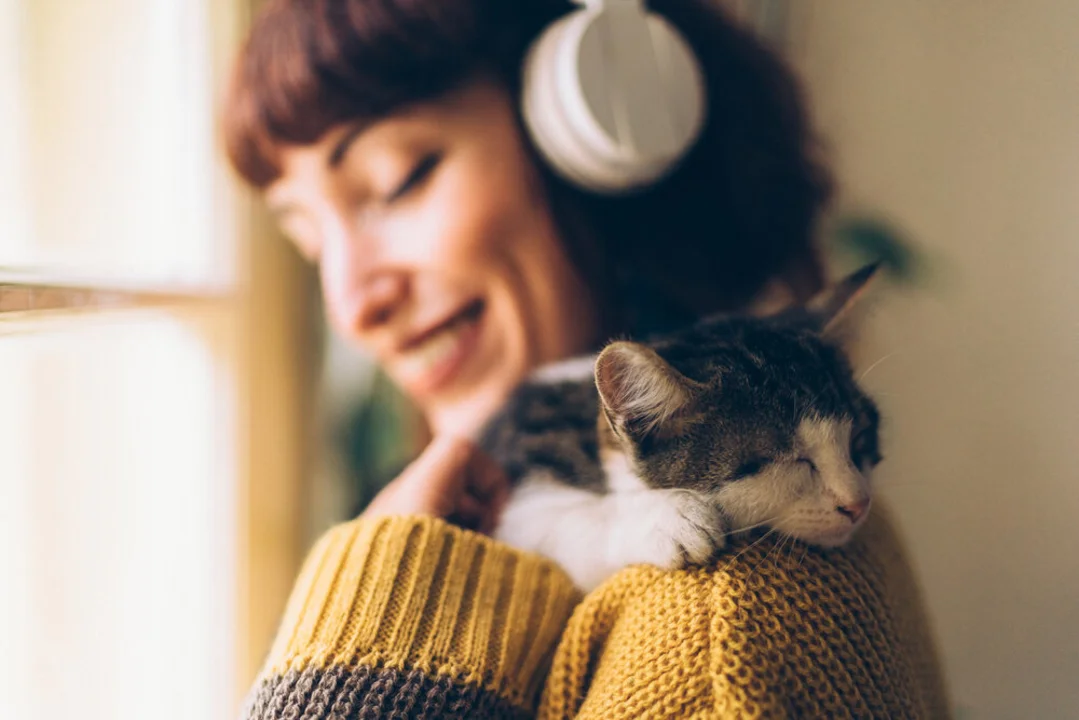How to Choose the Right Pet for Someone with BPD: Exploring the Benefits of Different Animals
Having Borderline Personality Disorder (BPD) can be incredibly overwhelming and stressful. It can be difficult to manage the intense emotions, impulsive behavior, and other symptoms that come with the disorder, but having a pet can be a great way to help reduce stress and improve mental health. Here, we will explore the benefits of different types of pets and how they may help someone living with BPD.
Dogs
Canines have long been known as man's best friend, and this couldn't be more true for someone with BPD. Dogs are incredibly loyal and loving, making them an ideal companion for someone with BPD who may be feeling lonely or overwhelmed. Dogs are also very intuitive and can sense when their owner is feeling down, which makes them great for providing comfort and emotional support. Finally, dogs require regular exercise, which can help to reduce stress and anxiety.
Cats
Cats are often seen as more independent than dogs, but they can still be great for someone with BPD. Cats are very loving and can provide the same emotional support as a dog. Additionally, cats are low-maintenance and don't require as much exercise, which can be helpful for someone who may be struggling with motivation. Plus, cats can help reduce stress and anxiety by providing a calming presence.
Birds
Birds are a great option for someone with BPD, as they can provide companionship without the same level of commitment as a dog or cat. Birds need less space and can be great for providing some light entertainment. Additionally, the sounds of the birds can be very soothing and calming, making them an ideal pet for someone with BPD. Plus, birds are relatively low-maintenance and don't require much in the way of exercise or grooming.
Fish
Fish may be the ideal pet for someone with BPD, as they don't require much in the way of maintenance or interaction. Watching fish can be incredibly calming, and the sound of the water can be very soothing. Fish also require very little space, which can be helpful for someone living in a small apartment or house. Plus, caring for fish can provide a sense of accomplishment, which can be beneficial for someone with BPD.
Reptiles
Reptiles are often overlooked as pets, but they can be a great option for someone with BPD. Reptiles are low-maintenance and don't require much in the way of interaction, making them an ideal pet for someone who may be feeling overwhelmed. Additionally, caring for reptiles can provide a sense of purpose and accomplishment, which can help to boost one's self-esteem. Plus, reptiles are relatively inexpensive and require very little space, making them perfect for someone living in a small apartment.
The Role of Pets in Managing Symptoms of BPD: What Types of Pets are Most Effective?
Living with Borderline Personality Disorder (BPD) can be challenging, but having a pet may help manage symptoms and improve quality of life. Pets provide a sense of security, unconditional love, and companionship that can be incredibly beneficial for those living with BPD. Different types of pets have different benefits, so it's important to think carefully when choosing a pet.
The Benefits of Owning a Pet
Pets provide emotional support and unconditional love, both of which can be helpful for people with BPD. Pets can also help with feelings of loneliness, provide a sense of security, and offer a way to focus on something other than the symptoms of BPD. Additionally, having a pet can motivate people to get out of the house and take regular, healthy walks, and this can be beneficial for both physical and mental health.
The Benefits of Different Types of Pets
Dogs and cats can be great pets for people with BPD. Dogs, in particular, often provide an extra layer of security - they can alert their owners of potential danger and can help ease feelings of anxiety. Cats can also provide comfort, but they are generally more independent and require less care. Other animals, such as rabbits, hamsters, and guinea pigs, can also provide companionship and a sense of security, but they are usually more independent than dogs and cats.
Fish can also be a great low-maintenance pet for someone with BPD. Watching the fish swim around can be calming and therapeutic, and they don't require as much care as other pets. Finally, birds can also be great pets, as they are friendly and social, and they can provide their owners with a sense of companionship.
Choosing the Right Pet for You
When choosing a pet, the most important thing is to choose one that you know you will be able to care for. It is also important to choose a pet that meets your needs - if you are looking for companionship and security, a dog or cat may be the best choice, whereas if you are looking for a low-maintenance pet, a fish or bird may be the better option. Lastly, it is important to consider your living situation - if you live in an apartment, you may want to consider a smaller pet, such as a cat or a rabbit.
Having a pet can be incredibly beneficial for someone with BPD. Pets provide unconditional love, security, and companionship, and they can help manage the symptoms of BPD. Different types of pets have different benefits, so it is important to think carefully when choosing a pet. With the right pet, you can have a loyal companion and a way to manage your symptoms.
Navigating the Challenges of Pet Ownership for Someone with BPD: Tips and Advice for Finding the Right Fit
For someone living with Borderline Personality Disorder (BPD), the challenge of owning a pet can be a difficult task to navigate. When considering pet ownership, it is important to consider the practical, emotional and financial obligations that come with pet ownership. There are a variety of pets that are suitable for someone with BPD, but it is important to find a pet that will be a good fit for your lifestyle and your mental health.
When selecting a pet, it is important to consider the potential impact of pet ownership on your mental health. For example, having a pet can provide comfort, companionship and structure, but the responsibility of taking care of a pet can also be overwhelming. It is important to select a pet that will not add too much stress or responsibility to your life. Additionally, it is important to consider the financial and practical implications of pet ownership. Some pets require more care and attention than others, and some require more financial investment. Therefore, it is important to select a pet that will fit within your budget and lifestyle.
When selecting a pet, it is important to consider your own emotional needs as well. For example, some people with BPD may find that having a pet helps reduce or manage their symptoms, such as anxiety or depression. Additionally, having a pet can provide a sense of purpose and structure, which can be beneficial for someone with BPD. Therefore, it is important to select a pet that can provide comfort and companionship, and that will be a good fit for your lifestyle and mental health.
There are a variety of pets that are suitable for someone with BPD, such as cats, dogs, birds, fish, and small animals such as rabbits and guinea pigs. Each of these pets has different requirements and levels of care, so it is important to research each type of pet and decide which one is right for you. Additionally, it is important to select a pet that is compatible with your lifestyle and that you can commit to caring for. It is also important to consider the cost of pet ownership, as some pets require more financial investment than others.
Overall, it is important to consider the potential impact of pet ownership on your mental health and lifestyle when selecting a pet. It is important to select a pet that is compatible with your lifestyle and that will be a good fit for your mental health. Additionally, it is important to consider the financial and practical implications of pet ownership. With the right pet, pet ownership can be a rewarding and fulfilling experience for someone with BPD.

